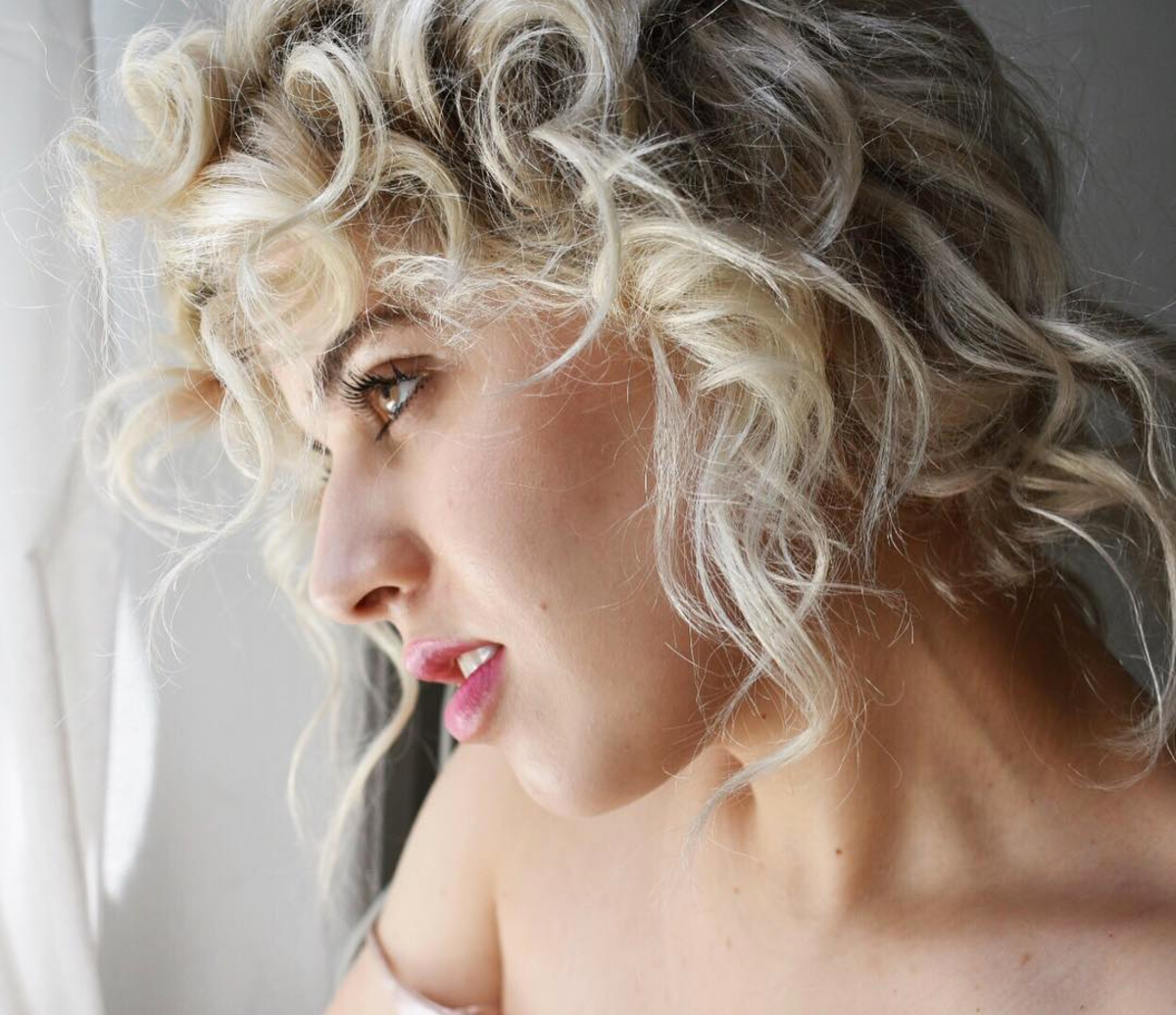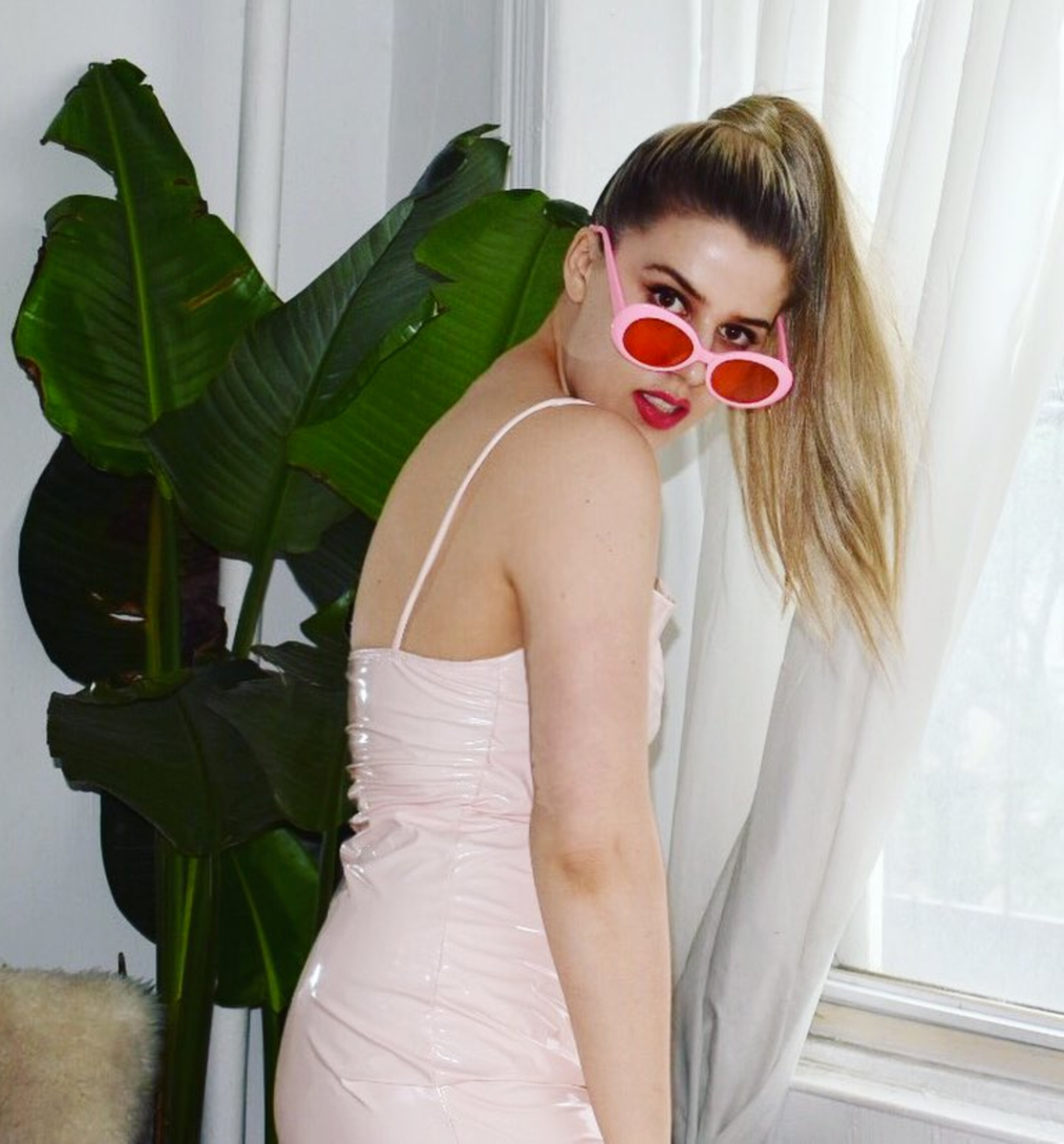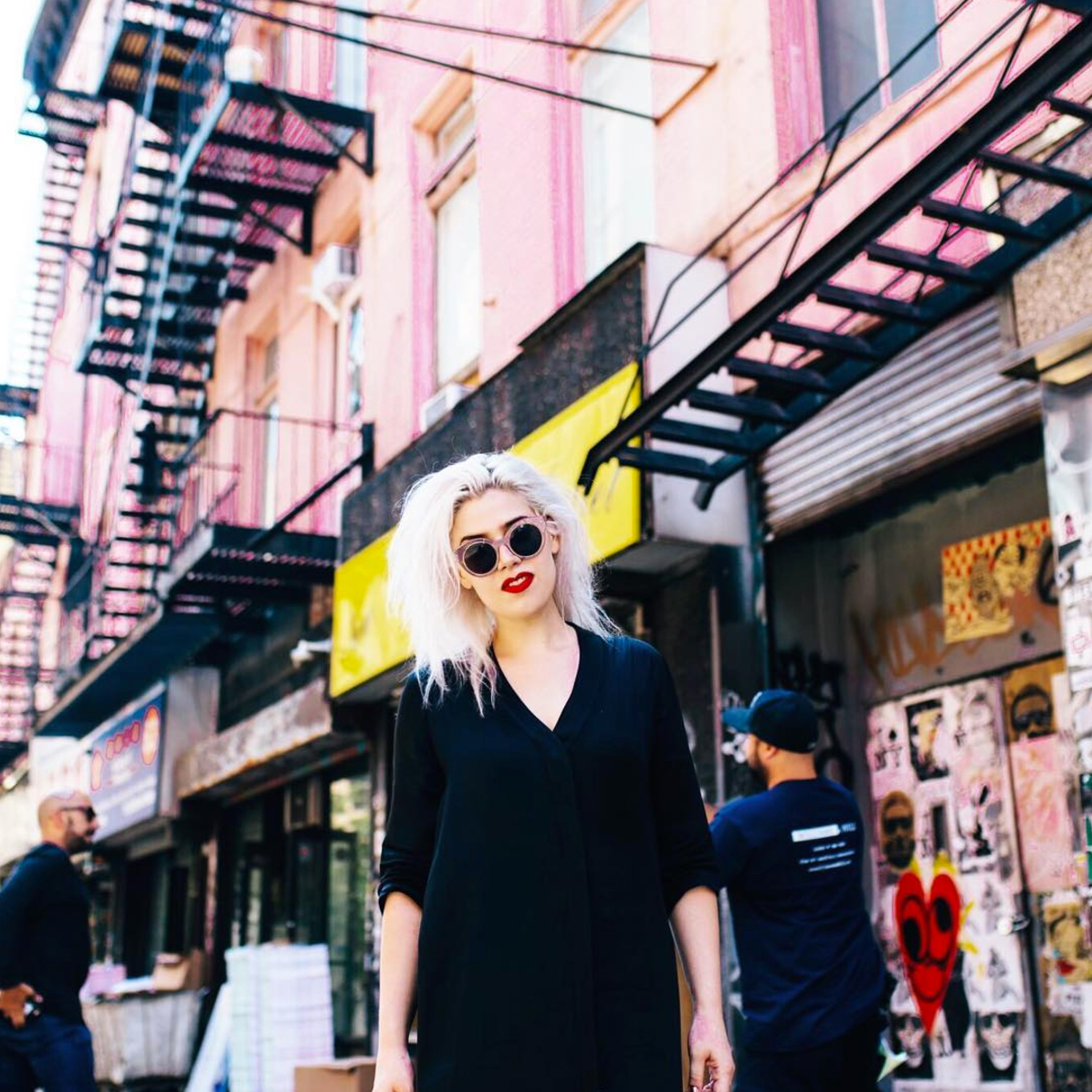Christina Grasso, know to IG as The Pouf, just launched a peer support network for women with eating disorders. In collaboration with Ruthie Friedlander, Special Projects Director at InStyle, the women have unveiled The Chain, the first peer-led support network exclusively for women in fashion, beauty, and entertainment struggling with eating disorders.
They co-founders connected over their shared history and the difficulty of navigating a career in fashion while actively working toward recovery.
The below is Christina's story and strength.
###
The most challenging moment of my young life came when I, a high-achieving, seemingly together 19-year-old college student had to admit that despite my carefully-crafted pretense, I was not okay. That I, someone who seemingly had it all, was in the midst of a life-or-death battle with anorexia nervosa.
I needed help.
It baffles me to think that had it been any sort of primarily physical ailment, like a broken bone or a gaping wound, I wouldn’t have so vehemently denied it and struggled in silence for so long. But the reality is that most people hesitate to ask for or accept help because of the shame and stigma that clouds mental illness. I felt embarrassed, ashamed, and alone. Which may be why only 10 percent of those who struggle with an eating disorder ever seek help–the rest are left to their own devices to fight a disease that has the highest mortality rate of all psychiatric illnesses. And had I not gotten help, as defiant and ambivalent as I was, it’s highly likely I would have died from heart failure.
"Only 10 percent of those who struggle with an eating disorder ever seek help."
Tweet this.
While admitting I needed help was, as they say, the first step to recovery, I was naive to the fact that the process would require constant honesty because eating disorders thrive in the dark.
The space between that crucial moment in college and today, almost a decade later, has been turbulent. I’ve bounced in and out of treatment centers and hospitals; my earnest efforts to get better sabotaged by a ruthless illness that started to rear its ugly head at the age of 12. I would take two steps forward and several steps back, which ultimately landed me, at my worst, hospitalized with a feeding tube. Though I am now in recovery, it’s an unimaginably difficult, everyday battle to stay in recovery. And along with a solid support system, it’s been my decision to disclose my history with eating disorders–not just in the workplace but publicly—that has given me the momentum to keep going.
When I graduated college and started my first job around 5 years ago, I subscribed to the widely-held belief that drawing a line in the sand through personal and professional matters wasn’t just standard practice, but of vital importance. That line quickly faded, though, when I chose to disclose my history in a story for a major publication. The article detailed my battle with anorexia, and knowing my colleagues would likely see it, I made the choice to be transparent with them ahead of time to avoid any unnecessary awkwardness. Doing so felt backward and uncomfortable, especially as a fiercely private individual. Part of me felt like disclosing my illness would lead to the demise of a career I had just begun, but something in my gut told me it was what I needed to do. Stepping out of my comfort zone and into the vast unknown was terrifying, but I knew it had to be better than standing in secrecy and fear for the rest of my life.
The response I received from my peers and colleagues was, and continues to be, overwhelmingly positive. After spending months—years, even—catastrophizing over what people would think, I was mostly met with empathy, curiosity, and support. In a way, it has kept me accountable in my recovery because since most people I’ve worked with are at least somewhat aware of my history, I know I can’t get away with disordered behaviors without it being somewhat obvious. However, that doesn’t necessarily mean it’s always easy. Because my job requires a great deal of social functions, and ones that often involve food, I’ve really had to learn to embrace the discomfort, which is ever-present. Over the years, something that has helped me tremendously is repeatedly giving myself to situations that are anxiety-provoking. While that may sound slightly masochistic, I remind myself to “fake it ‘til you make it,” and that doing the things of which we’re fearful is what breeds growth. And over time, I have grown a great deal and it really has gotten easier.
"Doing the things of which we’re fearful is what breeds growth."
Tweet this.
It has also opened up a whole new window of meaningful opportunities and relationships.. About 5 years ago, shortly after that article went live, I connected with Project HEAL, a non-profit that provides financial assistance to those battling eating disorders who cannot afford treatment. Today, I sit on their board and lead their public relations efforts, speak at schools about my recovery, and most recently have been privileged to consult with them on the new Netflix film, To the Bone. Together, these have been some of the most rewarding and energizing experiences which reaffirm both my recovery and my vulnerability in being open about it.
photo credit: Christina Grasso @thepouf
About The Chain: The Chain is a New York-based, not-for-profit peer support and mentorship program for women in the fashion and entertainment industries who are struggling with, or recovering from, an eating disorder. Founded in December 2017 by Christina Grasso and Ruthie Friedlander, both in recovery from anorexia, The Chain aims to create a safe space for this population to share their experiences and gain insight through conversation, support, and community building. For more information, or to become a member, please visit the-chain.us.
Christina Grasso is a 20-something year-old writer and activist originally from the Midwest. She has worked with Nylon, Huffington Post, Obsessee, Bullett, P.S. I made this, Thrive Global, Oscar de la Renta, Nanette Lepore, and celebrity makeup artist, Robin Black. She currently leads social media for StyleCaster and appeared on Season 18 of Law & Order: SVU. In addition to her work in fashion and beauty, she serves on the boards of the Glam4Good Foundation and Project HEAL. She has been involved with Project HEAL since 2012 as the founder of the New York City chapter, director of the PR and social media team, and creator of its viral "What Makes Me Beautiful" campaign. She is a frequent speaker on her own recovery from anorexia, and volunteers her free time to doing arts and crafts in hospitals, shelters, and assisted living communities throughout the New York City area. She lives in Manhattan.
Inspired by Christina's story? Share with us below for an open dialogue about this important topic.












